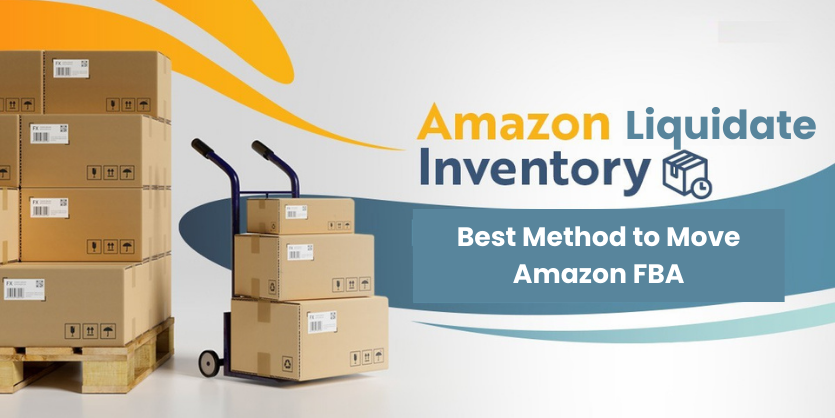Importance of Keywords in Amazon Listing, How to Improve Listing by Implementing them in Product’s title, description and bullet points
The beauty and burden of Amazon’s search engine; also known as A9, is its intelligibility. With a comparatively low number of ranking signals, Amazon’s search algorithm is less complicated when compared to Google and Bing. However, A9 indexes information and uses an array of factors to determine the products’ positions in the search results. It is normal to think of Amazon as a search engine. At the same time, it’s essential to remember that Amazon is an online marketplace. It’s a place to sell products. Although Amazon’s A9 search engine mirrors some characteristics of Google, it contains its very own algorithms and specifications for an audience’s choices targeting. This is simply because visitors of Amazon search by different words, for products compared to their typical Google search patterns.
Amazon cares more about buyers and selling products to those buyers. Amazon really, genuinely wants to sell products. With that in mind, Amazon’s A9 sorts the search results in order to sell as many products as possible.
When it comes to determining keywords strategy for listing products on Amazon, the seller needs to once again think along the very same lines of SEO. Similar to SEO processes, Amazon’s search engine, A9 depends on the keywords provided in the title, description and bullet points to determine the positions according to relevance in the search results.
Keywords in Title and Product Details:
When creating Amazon listing, Sellers need to know which Amazon search terms are most likely going to convert to a sale when the listing shows up in a customers search. By using some techniques, a seller will be able to sort the Amazon search terms in order of relevance to their listing and build their listing in accordance. Including search phrases that exactly match what a customer has searched in their listings copy, is going to help the conversion rate for that Amazon search term and in return, Amazon will move them up in the rankings for that search term.
Seller has to think about the customer’s perspective when they are preparing the content for their products. They have to use as much relevant & important keywords as possible in the title while making sure that they compose the product title & the product details that make sense to humans as well. Brand name, Product type, Key Features, Size, Color, Quantity; the customer’s scan for this information about the product at the very beginning. The product details and the bullet points sections are also the perfect places for you to insert as much as top ranking and relevant keywords possible.
Keywords in Seller Account:
Amazon provides an option known as “search terms”, also known as. “hidden keywords” a seller will be able to input these terms at the backend of Amazon Seller Account. In a nutshell, it enables a seller to key in more information about a product in a form of keywords that helps to boost their product’s position in search results.
Keywords Research:
If a seller aims to succeed on Amazon as a seller, they have to follow some strict guidelines to the words. This will take a seller to a path where keyword research is absolutely necessary. Seller has to research the ranking of product-related keywords and compile them in some sort of format for them to use later in the product’s title, details & hidden keywords sections. These keywords can be obtained through the following extensive research processes.
- Look into the details of the products related to their own products for potential search terms of the customers.
- Type in the Amazon Search Bar to get some ideas about the related search term suggestions.
- Use a keyword research tool. (In this article, we’ll use the Merchant Words website.)
Tools and Techniques:
There are a lot of tools available to do keyword research, such as merchant words, keywords everywhere, reverse-asin, jungle scout etc. We will use Merchant Words for this article. It is an online keywords research tool that uses its own proprietary AI algorithms to analyze, predict & rank search terms that users key in, into the Amazon Search Bar every day, in order to provide an estimation of any keywords.
For example, the screenshot below demonstrates how a user can gain some insights about the search term “military backpack”. The Merchant Words website returns a search result that contains all the related Amazon Search Terms and Amazon Search Volume. This search result can be exported as CSV file to get details of that particular term later on in the future.
As shown in the following screenshot, the downloaded CSV file for the “military backpack” search term can be later opened in a spreadsheet program. What we would be particularly interested in, are the phrases & the volume columns. The file contains all the phrases related to the “military backpack” search terms.
Following these simple steps, we will collect all the related keywords for a product in multiple CSV files. Later on, we will pluck only the top 20-25 keywords of a corresponding search term, combine them in a single spreadsheet and sort them from largest to smallest regarding the volume column as shown in the screenshot below.
Keywords in Product Details:
After completing the most important task of the product listing; Keywords Research, we move on injecting the keywords into the product details. The screenshot below can be an example of how we can use our ranked keywords, such as “military backpack” & “rucksack” in the product title, description & bullet points.
In conclusion, if you have made it this far, you are well ahead of most sellers on Amazon. With the perfect Amazon keyword research strategy, you will be able to make your products visible to more relevant, high-value prospective customers than ever before. Plus, due to optimized product titles and product details sections, you’ll turn that boosted visibility into a profitable online business.



